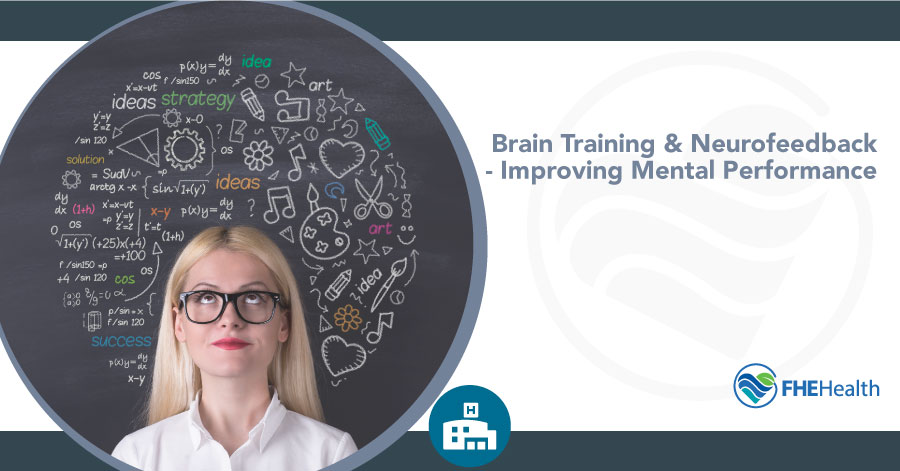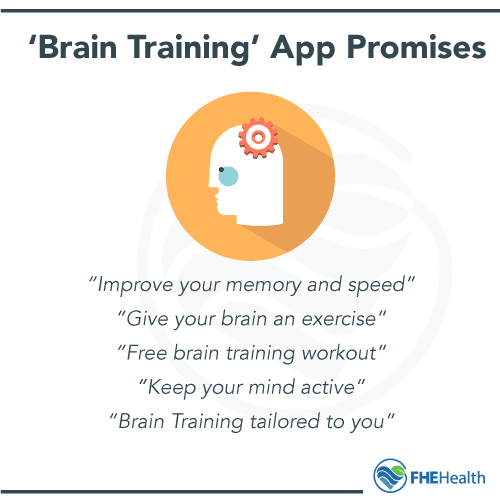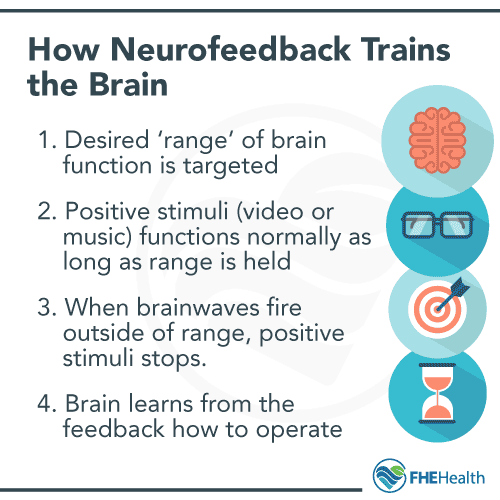
Is it the latest craze or real science? So goes the conversation about brain training and neurofeedback. Naturally, people want to know whether new technologies that reportedly “retrain” the brain for peak performance are medically legit or just one more money-making ruse; and, the answer to that query turns out to be a bit more complex than just a “yes” or a “no.”
The Hype Surrounding Brain Improvement Games: Does Brain Training Work?
 In recent years, mobile app stores have become flooded with hundreds of apps that promise to make players smarter in just a few minutes per day. These brain training games aren’t just limited to smartphones and tablets; with a quick internet search, desktop users can access thousands of brain training games, many of which can be played for free.
In recent years, mobile app stores have become flooded with hundreds of apps that promise to make players smarter in just a few minutes per day. These brain training games aren’t just limited to smartphones and tablets; with a quick internet search, desktop users can access thousands of brain training games, many of which can be played for free.
Generally speaking, the brain training games themselves aren’t complex; players perform simple tasks like memorizing tiles on a grid, solving puzzles as quickly as possible or solving math problems. The games are intended for players of all ages and appeal to many who wouldn’t consider themselves to be “gamers.”
The aim of these simple brain training games is to challenge the player’s mental abilities and ultimately to help them improve their performance with everyday mental tasks. They’re marketed as a fun way to keep the player’s mind active and even improve brain skills like working memory and concentration. In most cases, players are encouraged to participate in just one or two 15-minute sessions per day and to play a variety of games to train all the parts of their brains.
Online brain training games are categorized according to the skill they’re intended to develop and include memory games, games that test the player’s processing speed, problem-solving games, vocabulary and reading comprehension games, math games and more. According to game developers, regularly playing these games can improve spatial reasoning skills, remembering names, information processing, logical reasoning, and concentration.
While many brain training games are intended for adults, some developers have games that are specially geared towards children.
The Brain as a Muscle
Technically, the brain itself isn’t a muscle. It contains a bit of muscle, but it’s mainly made up of gray and white matter. Its cellular structure and function are differently and considerably more complex than a muscle. Even so, there’s a good reason that it’s often compared to a muscle; in both cases, the “use it or lose it” principle applies.
There are multiple bodies of evidence that suggest that mental stimulation improves working memory and overall brain function. Mental stimulation, or brain “exercises,” can help the brain grow stronger, faster and better able to handle the conscious and subconscious tasks it takes on every day. There’s even evidence to indicate that mental activity, along with proper diet, consistent exercise and engaging in regular social activities, can help build new connections and cells in the brain, protecting it from mental decline and memory loss conditions.
Optimizing the Brain’s Function with Neurofeedback
 In order to function optimally, the brain needs healthy slow- and fast-moving brainwave activity. Neurofeedback is a form of biofeedback that works to change the electrical activity of the brain. Essentially, it’s a non-invasive, non-drug reward-based training system for the brain.
In order to function optimally, the brain needs healthy slow- and fast-moving brainwave activity. Neurofeedback is a form of biofeedback that works to change the electrical activity of the brain. Essentially, it’s a non-invasive, non-drug reward-based training system for the brain.
This type of therapy is often used by professional athletes and business professionals as a way to improve overall performance and focus and to manage stress. It has also been shown to be effective in helping with many conditions, including substance use disorders, stress disorders, sleep problems, anxiety, rage disorders, and suicidal thoughts. Many clients also enjoy additional benefits to neurofeedback training, including better sleep quality and less anxiety.
All neurofeedback training methods involve EEG sensors to monitor brainwaves and a computer to send feedback to the user. In most cases, neurofeedback involves listening to music, playing a game or watching a video. When the brain is functioning within the desired range, the positive stimuli (the video, game or music) continues to operate smoothly, acting as a reward for the brain. When the brainwaves fire at a rate that’s not optimal, the user receives negative feedback; the positive stimulus stops, which tells the brain that something is out of balance. This causes the brain to try to figure out how to get the positive stimulus operating normally once again.
Over the course of neurofeedback training, the brain learns from the feedback, which promotes lasting structural changes within the brain. Eventually, the brain operates within optimal ranges outside of therapy sessions, optimizing its overall function and providing relief from the symptoms of the disorder it’s being used to treat.
Neurofeedback is tailored to each individual to address their unique symptoms. Most people attend weekly sessions for an average of 20 weeks, although some people need fewer sessions and some require more. This type of therapy isn’t considered a cure for disorders like substance abuse or insomnia, but it is a method of managing and regulating the brain for healthier functioning.
Can Neurofeedback Improve Mental Performance?
The brain’s state of arousal—being calm, anxious or agitated—can have a significant impact on how information is processed and an individual acts and makes decisions and judgment calls. For example, if someone is given the task of walking across a beam, their speed and likelihood of getting across the beam without falling are significantly better if the beam is a few inches off the ground versus 100 feet off the ground. While this is an uncommon scenario, the same principle holds true for other tasks: The brain performs optimally when arousal is at a moderate level, and performance suffers when arousal is heightened.
According to one study, neurofeedback is effective in modifying an individual’s state of arousal, which can improve their performance in tasks that may be stressful. In this study, 20 participants were immersed in a virtual reality scenario in which they had to navigate an airplane through obstacles that narrowed every 30 seconds, a task that was designed to create cognitive stress. When the researchers used neurofeedback, the participants’ performance and visual and motor coordination improved, enabling them to remain calm and fly their planes for longer without crashing.
The Future of Improving Mental Performance through Monitoring
While neurofeedback isn’t a new concept and has been the subject of research for decades, today’s technology provides more precise ways to track brainwaves, how they’re affected by different stimuli and how the brain can be re-trained.
Researchers and clinicians are now studying how neurofeedback can be used to regulate brain activity and responses for conditions like PTSD, generalized anxiety disorder, depression and other conditions. Some are even exploring how this technology can be used to inform human-agent teaming, that is, when humans and robots are used in high-stress situations, like a rescue.
On its own, neurofeedback training isn’t a complete cure or treatment for addictive tendencies, sleep disorders or depression, but it has shown to be effective when used alongside other treatment modalities. Clients who want to explore how the neurofeedback process may help them achieve optimal mental performance should seek out licensed mental health professionals who are trained to use this type of therapy. Behavioral health providers like FHE Health are on the cutting edge of treating substance use disorders with an integrated approach that includes individual and group therapy, medication, psychiatry and neurofeedback training.






